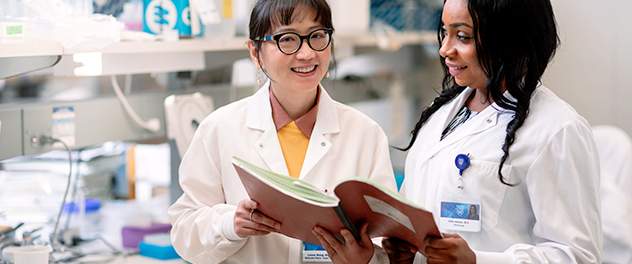 Designing therapeutic strategies to individualize therapy
Designing therapeutic strategies to individualize therapy
Dr. Wang's lab is committed to identifying and developing new remedies for conditions such as breast cancer, prostate cancer and mental illness. By understanding pharmacogenomics, especially antineoplastic agents and their influence on individual patient responses, it is possible to develop personalized, and therefore more-effective, treatments.
Overview
Pharmacogenomics is the study of the role of inheritance in variation in drug response, either efficacy or toxicity. Research in the Pharmacogenomics and Drug Targets Laboratory focuses on the pharmacogenomics of antineoplastic agents. Most antineoplastic drugs have narrow therapeutic indices. Therefore, treatment with these drugs can result in significant and sometimes life-threatening drug-induced toxicity.
At the same time, the therapeutic response to those agents varies. For example, aromatase inhibitors used to treat hormonal receptor-positive breast cancer — the most common subtype of breast cancer — can result in severe toxicity. This can cause patients to discontinue the lifesaving treatment. Also, some patients experience cancer recurrence despite being on the drugs for many years.
It is important to identify which subpopulations will respond to the treatment to achieve better therapeutic effect and avoid toxicity. At the same time, it also is important to understand why some patients do not respond to, or stop responding to, a given therapy. This is the goal of pharmacogenomics and individualized therapy — the future of medicine.
Pharmacogenomics is a rapidly growing field, and it has already had a real impact on the practice of medicine. Our lab is involved in every aspect of pharmacogenomics research from discovery and translation to the clinical implementation of pharmacogenomics.